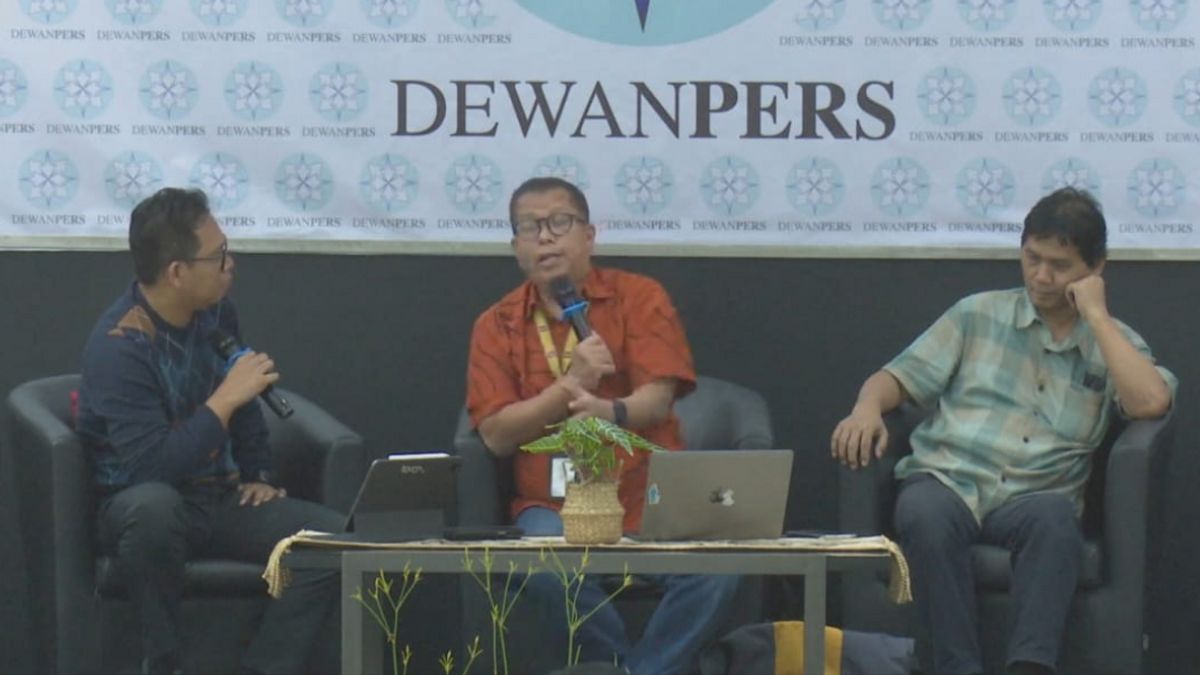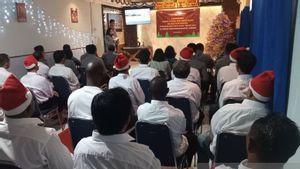JAKARTA Artificial Intelligence (AI) is increasingly being used and is starting to spread to the press world. This has caused concerns for a number of parties so that the Press Council has discussed it deeply. In a discussion forum themed Pers, Artificial Intelligence, and the Problem of Journalistic Code of Ethics Enforcement, it is explained that AI is closely related to the press, which was held at the Press Council Hall, Jakarta. This is because journalism has entered the digital realm. Therefore, Chairman of the Commission on Relations between Press Council Institute Totok Suryanto said that the relationship between AI and journalistic code of ethics needs to be studied. If not studied, the press could lag behind technological developments. "The press turned out to be very closely related to it (AI) and I think if we don't learn it immediately, if we don't master it immediately, this will be a loss for us," Totok said when opening the discussion forum on Thursday, March 28, which was also broadcast via Zoom and the Press Council Youtube channel. In line with Totok's statement, AI practitioner Apni Jaya Putra said that AI is growing, but increasingly uninteractive. The reason is, several sectors may be exposed and disadvantaged by the presence of this AI technology. Apni also cited findings from Harvard Business Review stating that there are many sectors or professions that could be affected by AI. "One of those exposed to the media and the most exposed is the presenter. "There is a strong reason why AI can harm the media. If reflecting on the presence of the media, Apni said that, "Media mainstream, especially traditional media, we have strong verification discipline."
This compares best with the data generated by AI. TVRI Supervisory Board Chair Agus Sudibyo explained that data from various AI models usually come from a user on a platform so that the results become highly biased. Like Google for example. When they create an AI, they will take advantage of various texts from the platform they have and this text comes from the rest of the user. When it comes to the form of an AI, the user's right to this data has disappeared. Another problem arising from the use of a generating AI is whether the resulting content is truly universal and reflects the views of the whole party. Otherwise, the information generated by AI will be biased and detrimental to the press media. "If the content data referred by AI is a generative example or data that is not yet universal, then the analysis answer is not a universal analysis answer," Agus explained. "There can be no biased journalistic product, but a generating AI still strongly allows the emergence of such content."
SEE ALSO:
To overcome this problem, Agus cited the first standards of journalism and AI ethics from Paris Charter On AI and Journalism. In utilizing AI, the press must make AI products a, "dual material or semi-finished material." By making AI content raw material, a journalist can verify the data before it is published so as not to share misleading information. In addition, Apni also suggested that the Press Council should regulate guidelines that can be used as a reference in using AI in the media industry. "It should be raised in the form of a rule. Kominfo has circulated circulars, but the Press Council that has a media constituent should indeed be made according to the guidelines issued properly by the Press Council," explained Apni.
The English, Chinese, Japanese, Arabic, and French versions are automatically generated by the AI. So there may still be inaccuracies in translating, please always see Indonesian as our main language. (system supported by DigitalSiber.id)


















